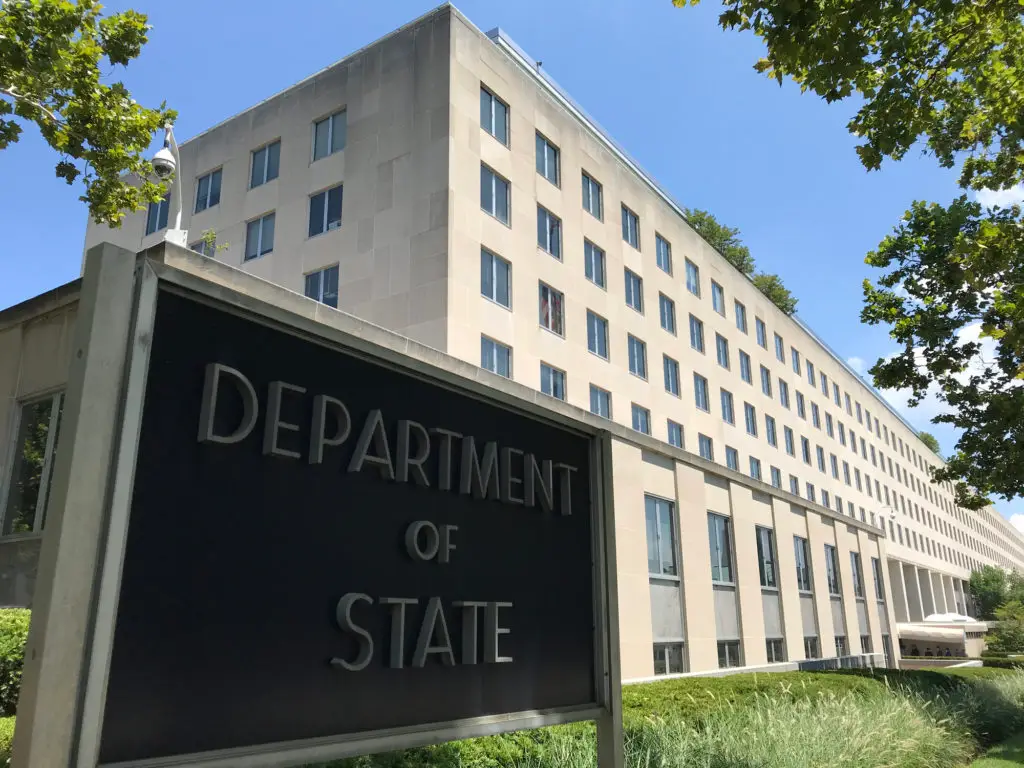WASHINGTON (BP) – State Department officials sought to provide assurances the Biden administration will maintain the United States’ commitment to international religious freedom in commenting on the latest annual report on the issue.
In its 2020 report issued Wednesday (May 12), the State Department assessed religious freedom in nearly 200 countries and territories, with officials citing high restrictions on the exercise of faith in some countries and advances in religious liberty in others.
Meanwhile, the Southern Baptist Convention’s religious liberty entity commended the U.S. government’s report on treatment of faith communities globally while calling on President Biden, who has been in office nearly four months, to nominate an ambassador-at-large for international religious freedom.
In comments to reporters upon the report’s release, Secretary of State Antony Blinken and Dan Nadel, senior official in the Office of International Religious Freedom, signaled global religious liberty would not receive less attention than it did during the Trump administration.
The Biden administration’s “promise to the world” is it “will protect and defend religious freedom around the world,” Blinken said. “We will maintain America’s longstanding leadership on this issue.”
Religious liberty “is a key foreign policy” of the Biden administration, said Nadel, who has worked on the annual report in three administrations. “There’s no equivocation there, no concern about any perception of backing away.”
Russell Moore, president of the Southern Baptist Ethics & Religious Liberty Commission, said, “The abuses documented each year in this report should grieve us to the core, and yet, that is also why we should be grateful for the State Department’s work in shining a light on these issues.”
Moore said he is grateful Blinken called attention to the abuses occurring in China and Burma, as well as “specifically recognizing that in Saudi Arabia there is no legally allowed Christian church.”
“Yet, because this work is too important to leave to one report or announcement alone,” he urged the administration to nominate an ambassador-at-large for international religious freedom “without delay. These perilous situations around the world demand an urgent and sustained response from the United States.”
On May 4, Sen. James Lankford, R-Okla., a Southern Baptist, and Rep. French Hill, R-Ark., sent a letter – joined by a bipartisan collection of six other members of Congress – to Biden to request that he nominate an ambassador-at-large at his “earliest opportunity.”
Officers with the U.S. Commission on International Religious Freedom (USCIRF) – which makes policy recommendations to the State Department, president and Congress – also expressed gratitude for the annual report but called for strong policies to enforce its findings.
In comments to reporters, Blinken cited the following as examples of countries in which about 80 percent of the world’s population lives with high or severe restrictions on religious freedom:
- Burma (Myanmar), where military coup leaders and others are “responsible for ethnic cleansing and other atrocities against the Rohingya people, most of whom are Muslim, and other religious and ethnic” people groups.
- China, which “broadly criminalizes religious expression and continues to commit crimes against humanity and genocide” against the Uyghurs, who are predominantly Muslim, and other religious and ethnic minorities.
- Iran, which “continues to intimidate, harass, and arrest members of minority faith groups, including Baha’i, Christians, Jews, Zoroastrians, Sunni and Sufi Muslims.”
- Nigeria, where courts still convict and sentence people to long-term imprisonment or even death for blasphemy against Islam.
- Russia, where government officials “continue to harass, detain, and seize [the] property of Jehovah’s Witnesses, as well as members of Muslim minority groups on the pretense of alleged extremism.”
- Saudi Arabia, which is “the only country in the world without a Christian church” despite the presence of more than a million Christians.
Blinken pointed to Sudan and Uzbekistan as countries that have made progress on religious freedom. Sudan, which had been removed from the State Department’s list of the world’s worst violators of religious liberty, “repealed apostasy laws and public order laws that had been used to harass members” of religious minorities, he said. Uzbekistan released hundreds of faith-based prisoners, Blinken said.
Both Blinken and Nadel pointed to continuing reports of anti-Semitism and anti-Muslim hate in the world.
Anti-Semitism is “on the rise worldwide, including here in the United States, as well as across Europe,” Blinken said at the news briefing. He also said hatred of Muslims “is still widespread in many countries, and this, too, is a serious problem for the United States, as well as in Europe.”
Nadel told reporters anti-Semitism, anti-Muslim hatred and “other forms of bigotry continue to be genuine threats.”
When asked about the persecution of Christians globally, Nadel said the State Department takes “those issues extremely seriously.”
The State Department is obligated by federal law to name within six months of its report its lists of the world’s most severe violators of religious freedom.
USCIRF, a bipartisan panel of nine members, offered its annual report in April and made its recommendations to the State Department at that time. USCIRF called for the addition of India, Russia, Syria and Vietnam to the State Department’s list of “countries of particular concern” that consists of Burma, China, Eritrea, Iran, Nigeria, North Korea, Pakistan, Saudi Arabia, Tajikistan and Turkmenistan.
The commission recommended Afghanistan, Algeria, Azerbaijan, Egypt, Indonesia, Iraq, Kazakhstan, Malaysia, Turkey and Uzbekistan be added to current members Cuba and Nicaragua on the Special Watch List of violators.
USCIRF recommended the same list of “entities of particular concern:” Al-Shabaab; Boko Haram, the Houthis (Ansar Allah), Hay’at Tahrir al-Sham (HTS), Islamic State in the Greater Sahara (ISGS), Jamaat Nasr al-Islam wal Muslimin (JNIM) and the Taliban.
U.S. embassies collaborate with the Office of International Religious Freedom to prepare the report each year. The report is available at https://www.state.gov/reports/2020-report-on-international-religious-freedom/.
This was written by Tom Strode and was originally published at baptistpress.com

